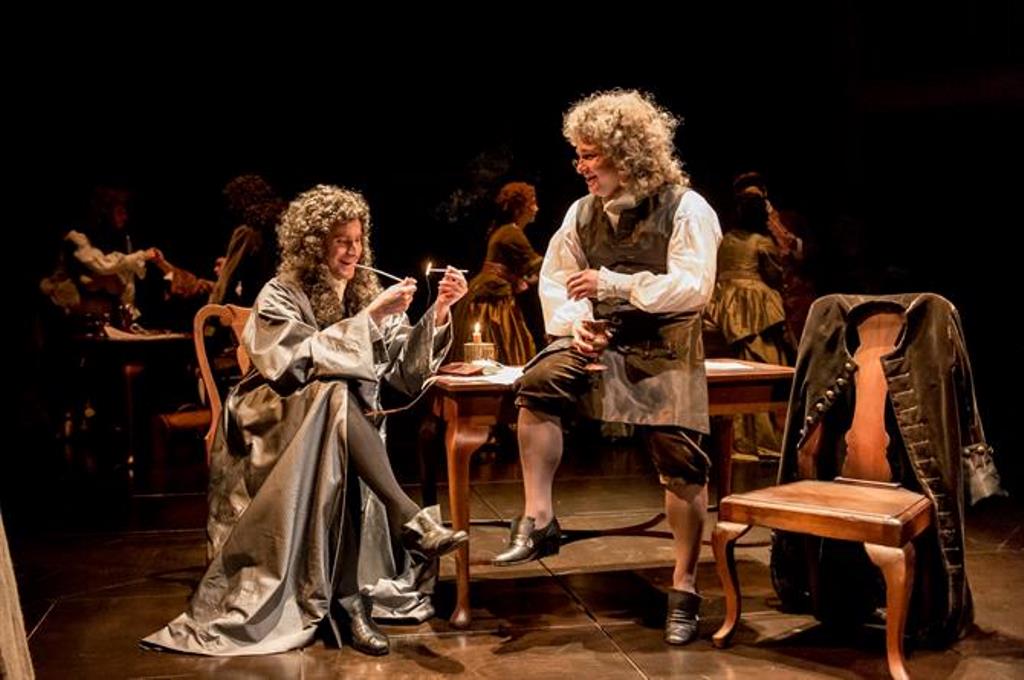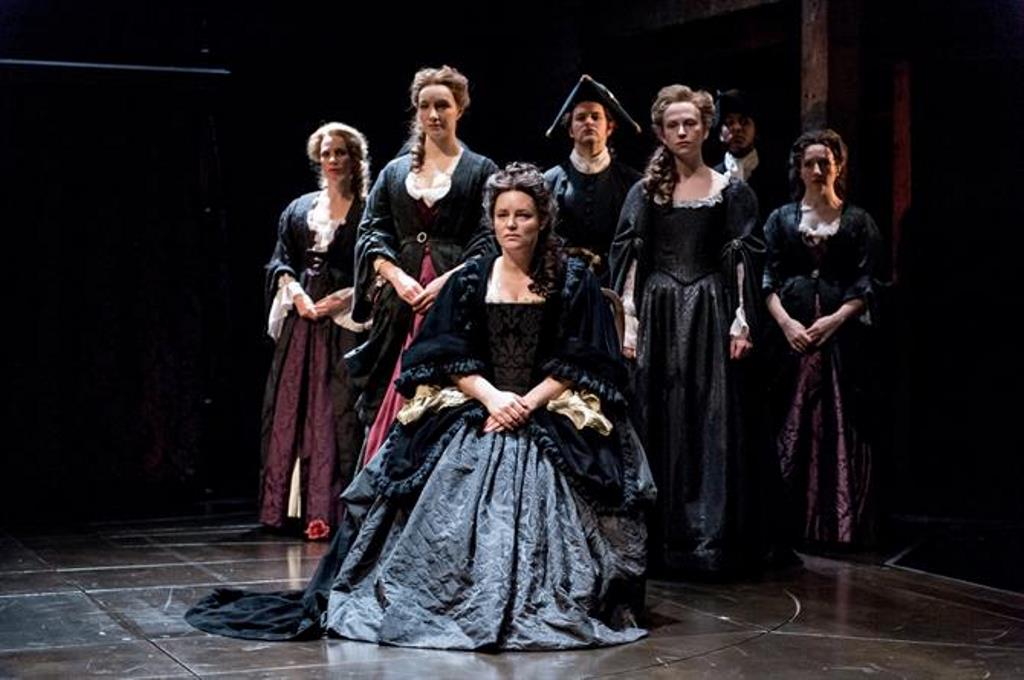I was out of the country when Queen Anne opened and finally caught up with it only at the very end of December. It has had much praise – and for me this praise is deserved. The script by Helen Edmundson – like last year’s Oppenheimer, a commission of the RSC – is an historic recreation. In this case, I felt it came across less as a piece of innovative theatre and more like a strong BBC costume drama. But the play is not simply workmanlike – it tells the story of the friendship of the initially shy and insecure Queen Anne and the ambitious Sarah Churchill with real feeling. It also displays the politics of the period in ways that make it comprehensible. The historic characters – including Daniel Defoe and Jonathan Swift – are clearly drawn and totally convincing; and the intrusion of moments of satiric send-up that reflect the newspapers and cartoons of the period add wit and theatricality.
The design by Hannah Clark sets the play visually in its context. Natalie Abrahami deserves much praise for her directing of the ensemble. She keeps the action moving; her pacing of the quieter scenes and of the development of the breach between Anne and Sarah is involving and moving. Above all, there is not a dud performance. Jonathan Broadbent’s Roert Harley and Beth Park’s undertaking of the role of the next favourite, the redoubtable Mrs Masham, are memorable and the characterizations have a clarity that both explains the background history and also is driving me back to that fine book about this reign, Queen Anne by Anne Somerset. Above all, both Emma Cunniffe as the sick, gout-ridden Anne (who had 17 pregnancies but left no heir) and Natascha McElhone as the beautiful, supremely confident, ambitious and ultimately thwarted (and increasingly self-destructive) Sarah Churchill, embody their characters and make one feel: yes, this is what they must have been like.
One of the fine things in the play is the way the women and their relationship grow, develop and shift until Anne becomes not only her own woman but a real, intelligent and morally centred Queen, while Sarah becomes swallowed up by her own ego and self-aggrandizing view of her role and her powers.
The power-couple relationship with Robert Cavanah’s John Churchill is beautifully and convincingly played and the role that eroticism plays for that couple is mirrored strongly by Anne’s quasi-erotic fascination with Sarah, something the knowing and sometimes smug Duchess uses with real guile to manipulate her friend. All the characters are vividly drawn. The play makes one reconsider the reign of this monarch who presided over a difficult period when the throne was often unstable, the wars were costly but seen as necessary, the parliament was consolidating its constitutional rights and the succession very much in question. The play pretty clearly delineates the struggle between the Whigs and the Tories and their machinations to win Anne’s support. If you become interested in the actual history behind this play, you could start background reading not only with Anne Somerset’s fine book but also by reading William Makepeace Thackeray’s neglected but masterful and totally entertaining novel The History of Henry Esmond.
This play is as entertaining and informative as Thackeray’s masterful novel in its own more circumscribed way (a three hour play cannot quite do the work of a novel of several hundred pages but it sketches and suggests a great deal of the background material) and Queen Anne is a good start for contemplating not only the politics and difficulties of this era in English history but also an amazing friendship of two women that began as mutually beneficial and supportive and ended as bitter and destructive because of the way these two personalities developed and played off one another. Above all, it is captivating theatre. Watching the growth of Anne’s character as she responds to the necessity of being the Queen and observing the over-reaching of Sarah as she becomes too self-confident and too convinced that she is the real power in the land is both theatrically strong drama and intellectually fascinating. I liked the play a lot and hope it is transferred to the West End.
Anne’s great hope as queen was to end the wars with France and to bring Scotland into the United Kingdom – both of which ambitions were achieved before her death. I think that the RSC commissioned plays are becoming a fine tradition.




